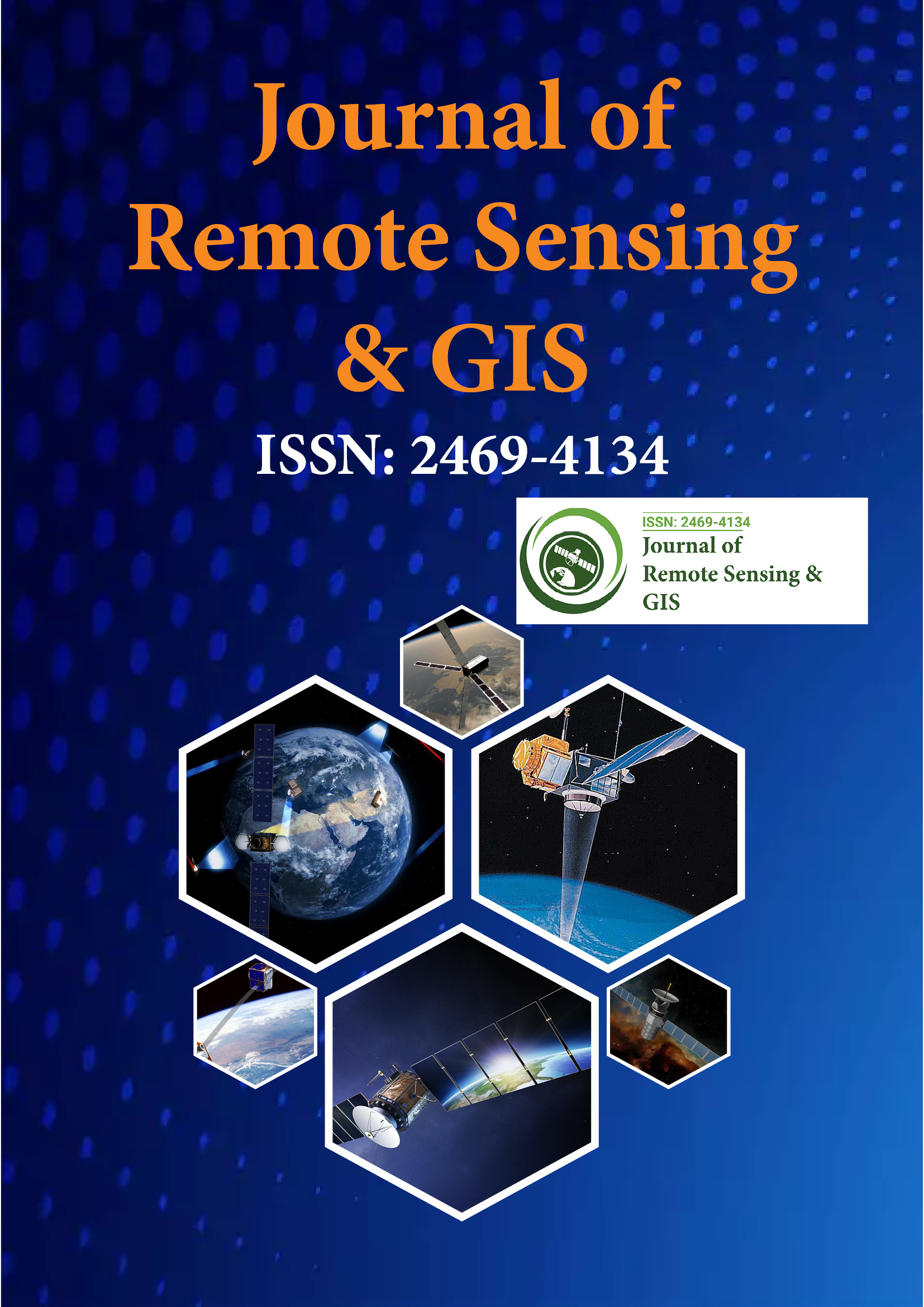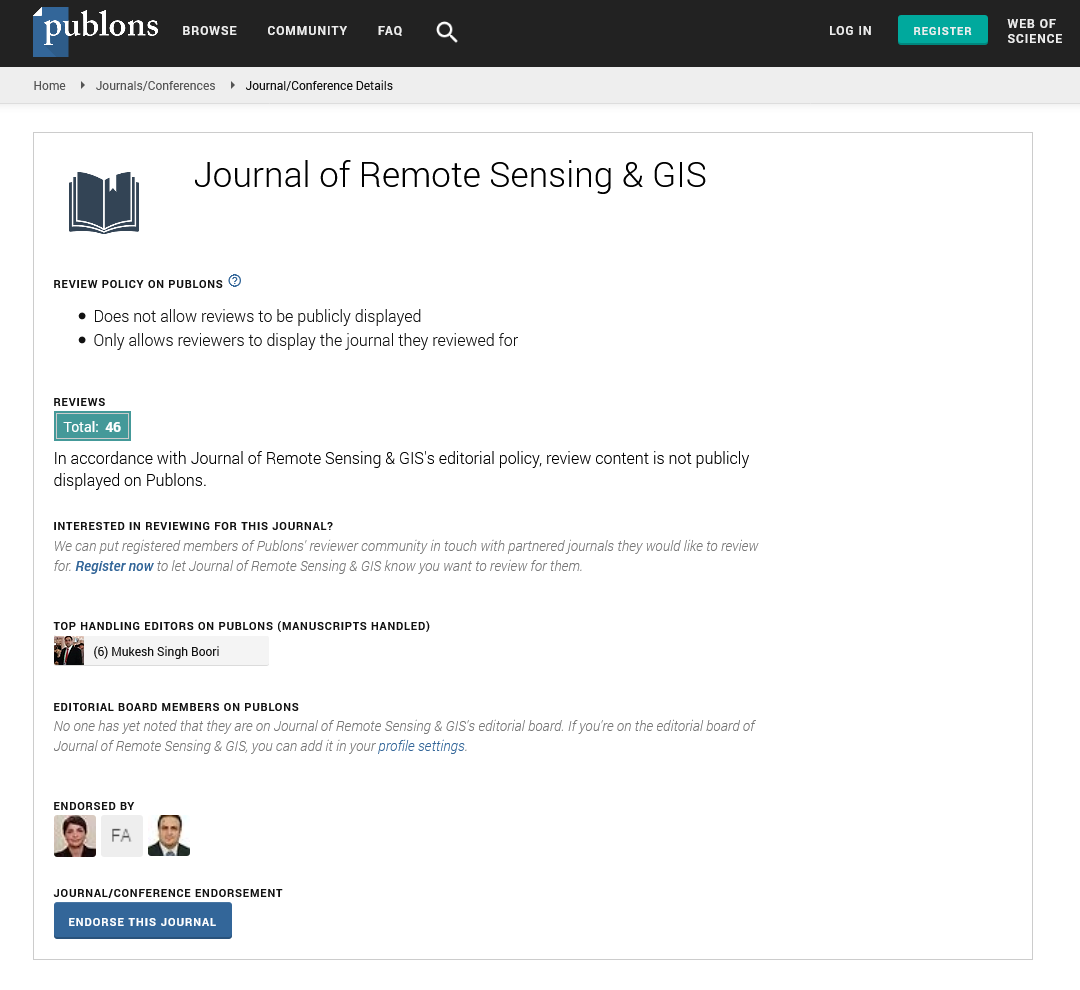Indexed In
- Open J Gate
- RefSeek
- Hamdard University
- EBSCO A-Z
- OCLC- WorldCat
- Publons
- International Scientific Indexing
- Euro Pub
- Google Scholar
Useful Links
Share This Page
Journal Flyer

Open Access Journals
- Agri and Aquaculture
- Biochemistry
- Bioinformatics & Systems Biology
- Business & Management
- Chemistry
- Clinical Sciences
- Engineering
- Food & Nutrition
- General Science
- Genetics & Molecular Biology
- Immunology & Microbiology
- Medical Sciences
- Neuroscience & Psychology
- Nursing & Health Care
- Pharmaceutical Sciences
Abstract
Application of Remote Sensing and GIS in Forest Cover Change in District Haripur, Pakistan
Hafiz Usman Ahmed Khan
Remote sensing & GIS datafrom satellite platformsoffer a best way to detect areas of deforestation and reforestation, and thus a spatial analysis based study was piloted in Haripur district, Punjab region. In forest management the impost of forest cover and its change is an essential issue, on the fashion to estimating the forest resource and its changes to support the decision makers that may ensure and conserve the resource. The aims of this study were to detect the change in forest extent over the last 10 years. Multi-temporal Landsat imageries of the 2007, 2012 and 2017 were used to prepare forest cover map in exacting and LULC maps in general. Post-classification comparison and normalized difference vegetation index (NDVI) were employed. Unsupervised image classification technique was applied on satellite images of 2007, 2012 and 2017 for LULC mapping. The results indicated fluctuating trends during the last 10 years in District Haripur, forest cover declined from 79763.324 ha in 2007 to 50971.866 ha in 2012 and forest cover amplified 69721.099 ha in the year 2017.The decrease was mainly due to socioeconomic factors like expansion of agricultural land, demand of fuel wood, construction materials and population growth.Some of the valuable tree species disappeared during the period 2007-2012 due to massive deforestation, reforestation occurred in 2013 and highlighted a positive feedback in 2017 forest cover map.Several vitalities have been made to standstill deforestation events. Therefore, in order to lessen the problem of deforestation, curative measures are suggested.
Published Date: 2021-09-06;

